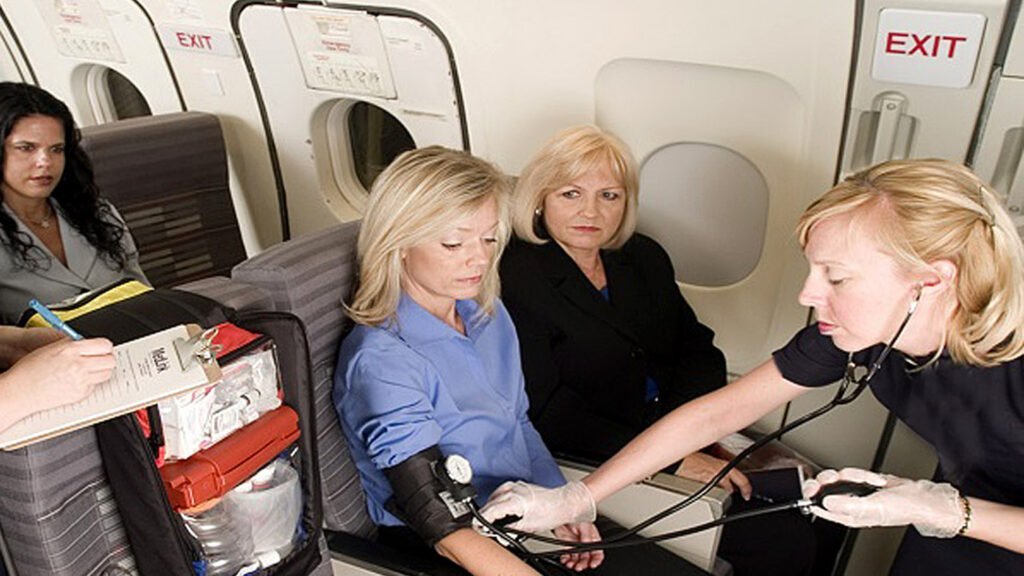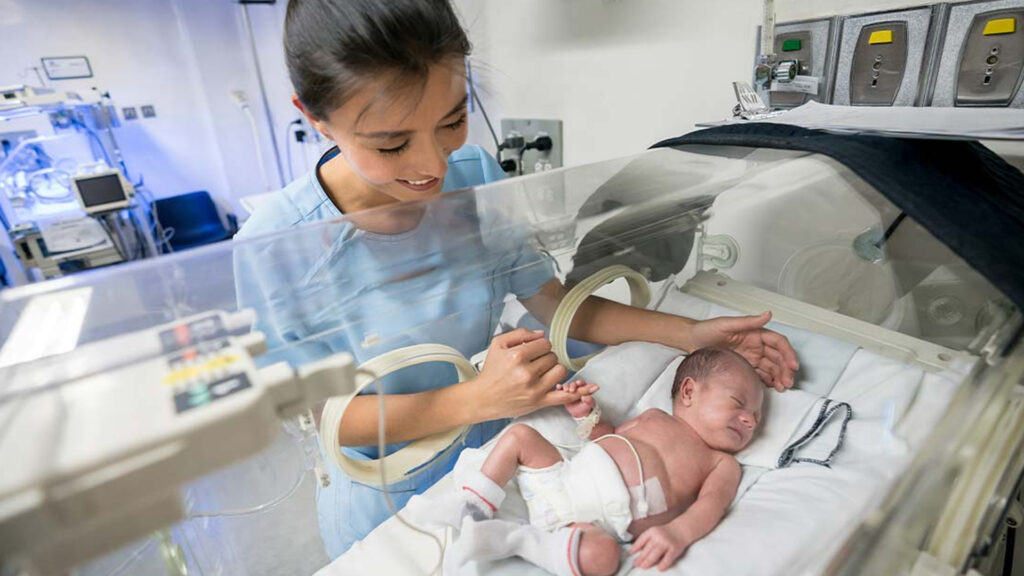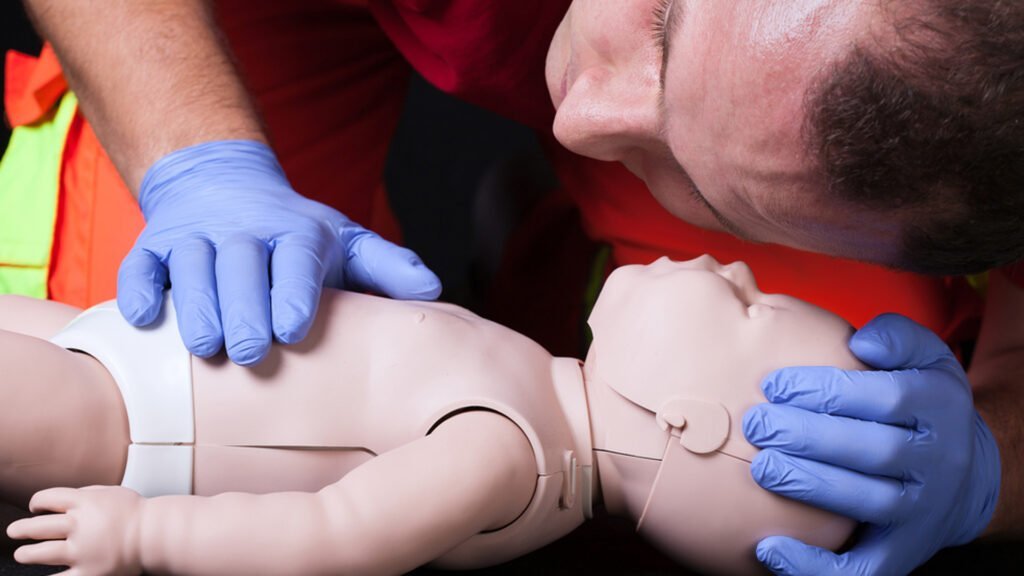Aviation safety involves experts taking measures to prepare for any accidents beforehand. They do this by educating crew members and the general public, doing research about new protocols, training, and improvements to aircraft structure and aviation infrastructure.
Aviation safety is indeed a vast subject. However, the scope of this blog covers educating crew members and research into new protocols and training. The blog covers how healthcare professionals are helping the aviation industry get better at handling medical emergencies.
Healthcare professionals impart crucial training to crew members to assess and diagnose the patient during a medical emergency. The training also teaches them how to keep their heads about so that a clear decision can be made regarding the next line of action.
Why Do Medical Emergencies Occur During Flights?
According to an article published on the SKYbrary website, in-flight injuries can occur due to many factors such as, injuries resulting from turbulence encounter, luggage falling from an overhead bin, an onboard altercation or due to burns or scalds resulting from contact with hot liquids or galley ovens.
Sometimes, just the fear of flying can also result in some passengers hyperventilating or having a panic attack. Additionally, atmospheric pressure changes and loud jet noise can also cause problems.
In February of this year, an Air India Flight travelling from New York to New Delhi was diverted to London after a patient suffered from a medical emergency.
But before the decision to divert the flight is taken, there are a lot of preliminary steps involved. The most important of them is the training of the flight crew and how they step in to take control of the situation.
Why does the Aviation Crew need training to handle medical Emergencies?
The DGCA (Directorate General of Civil Aviation) has made it mandatory for aircrafts to carry a first aid kit in an Indian registered aircraft. These kits must be used by adequately trained crew members to provide first aid to a struggling patient and potentially save their life.
According to a study published in the Indian Journal of Aerospace Medicine, there were 221 reported in-flight emergencies from a single airline during a 3 year period. Evidently, the combined data from all other airlines is much higher.
The data suggests, contrary to the popular belief, medical emergencies frequently take place during flights. Rerouting the flight during every single medical emergency is unfeasible. Thus, crew members must be trained to provide first aid relief to the patient.

Basic Assessment Performed by Crew during Medical Emergency
A basic assessment includes the crew performing a question and answer protocol with the patient to determine the cause of their distress. If the patient is unconscious however, they perform the three ABCs of first aid: determining if the patient has an open Airway, is Breathing and has Circulation of blood.
In an ideal situation, the answer to all these questions should be yes. However, in the real world the situation can be far more challenging, In such a case, the crew member must perform additional first aid techniques for which they must receive training from certified healthcare trainers.

First Aid Techniques used in Aviation Medical Emergencies
Advanced Cardiac Life Support
Advanced Cardiac Life Support is a set of life-saving protocols and skills that are used to provide immediate treatment to a patient suffering from cardiac arrest, stroke, myocardial infarction, and other conditions.
This technique is part of American Heart Association’s Chain of Survival, which includes five actions that can increase the survival rate of sudden cardiac arrest emergencies.
These five actions include:
- Immediate recognition of cardiac arrest and activation of the emergency response system
- Early high-quality CPR with an emphasis on chest compressions
- Rapid defibrillation
- Effective Advanced Cardiac Life Support
- Integrated Post-Cardiac Arrest Care
Studies show that a vast number of passengers with cardiovascular diseases are travelling on board flights as healthcare continues to improve. But they are also at a heightened risk of cardiac arrest. Therefore, advanced cardiac life support training is essential for all aviation crew.

Neonatal Resuscitation
Neonatal Resuscitation is a set of procedures designed to help newborn babies breathe. The procedure unblocks the airway and circulates blood following birth.
There have been cases of childbirth on aeroplanes. As healthcare becomes better, more and more pregnant women are going to be travelling via air which increases the chance of this happening. Thus, the crew must remain prepared for any situation.

Paediatric Advanced Life Support
PALS is a set of protocols, designed by the American Heart Association, that are performed during a medical emergency experienced by an infant or a child.
Healthcare professionals train aviation crew to perform this procedure in case a child experiences a medical emergency. Flights are particularly taxing on children.

Mechanical Ventilation
Mechanical ventilation alleviates breathing difficulties through mechanical means. It can be invasive (tube reaching the lungs through mouth or neck) or non-invasive (mask fixed onto the face).
A patient suffering from a medical emergency may very likely experience difficulty in breathing. Mechanical ventilation can help the patient’s body stabilise for other treatment to happen or till the time more help arrives.

These emergencies can occur anytime and the aviation crew must have this basic training to perform at crucial times. Having said that, airlines always struggle to find trained and verified healthcare professionals to train their crew. But not anymore! With Jobizo’s technologys, the airlines are now finding relief!!
Jobizo: Recruit Verified Healthcare Professional to Train Aviation Crew
Jobizo is India’s first fully technology-driven healthcare recruiting platform. The Platform is trusted by major domestic airlines, such as IndiGo, whose flight crews have received first aid training from Jobizo verified healthcare professionals recruited by its platform.
Jobizo’s intelligent AI screens out candidates with dubious credentials ensuring that your organisation hires only the best professionals!
It also gives automated profile suggestions of healthcare workers who best suit your needs based on your hiring patterns & history. This easy-to-use platform will save you, not only precious time, but also on operating expenses.
Visit the Jobizo web app today and start recruiting verified professionals to train your inflight crew, now! (For healthcare employees looking to be hired by airlines, download our app from Play Store/App Store)


